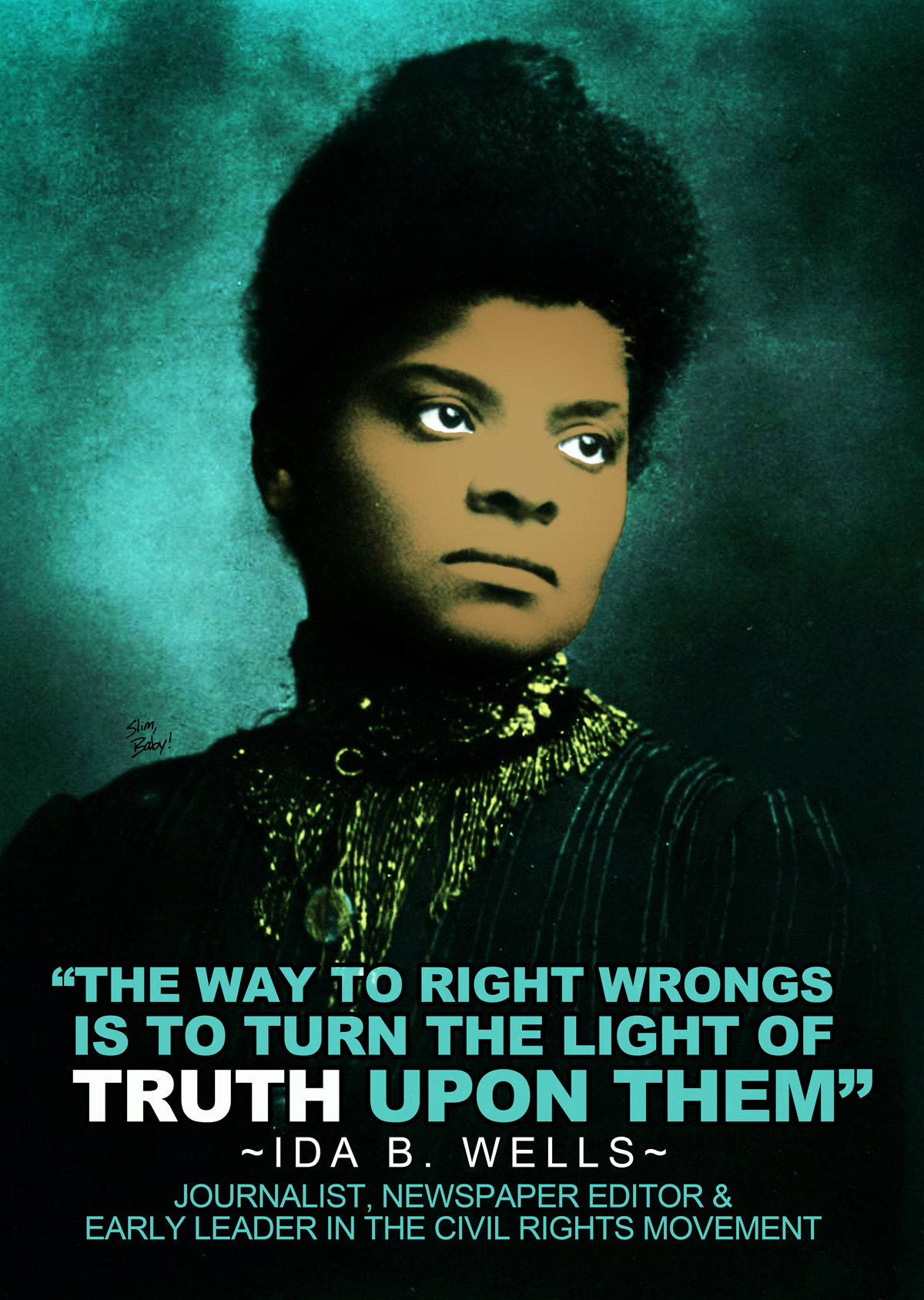by Paula J. Giddings
Progressive Era-WWI
Ethnicity & Race
Gender & Sexuality

Thesis:
Ida B. Wells was an incredibly significant Progressive player in the issues of racism and gender equality at the turn of the 20th Century. Her work against African American lynching is of the utmost importance but it is also, often overlooked.
Specific examples/evidence that supports the
thesis:
Summary:
This book discusses the life of Ida Wells. Daughter of freed slaves, her life and her story spans from the post Civil War Reconstruction through to the beginning of the Great Depression.
Ida's life was full of challenges, her parents were killed when she was 16 by an outbreak of Yellow Fever. At that time she quit school to become a teacher and care for her siblings. Ever bitter by the hand she was dealt, Ida became an outspoken woman unafraid of speaking out against perceived wrongs. “Throughout the remainder of her life, she struggled to turn the negative emotions of abandonment into a righteous determination to reform herself and the society that had forsaken her race.”
She moved to Memphis where she made her first public attempt to challenge racist notions. Aboard a train she was asked to move to the "Jim-Crow" car but refused on the argument that it was crowded and people were smoking in there. They forcibly removed her and she sued the rail company. She eventually lost the suit in the Supreme Court of Tennessee. This further emboldened Wells about the injustice inherent in the post-Reconstruction South.
Ida's life was full of challenges, her parents were killed when she was 16 by an outbreak of Yellow Fever. At that time she quit school to become a teacher and care for her siblings. Ever bitter by the hand she was dealt, Ida became an outspoken woman unafraid of speaking out against perceived wrongs. “Throughout the remainder of her life, she struggled to turn the negative emotions of abandonment into a righteous determination to reform herself and the society that had forsaken her race.”
She moved to Memphis where she made her first public attempt to challenge racist notions. Aboard a train she was asked to move to the "Jim-Crow" car but refused on the argument that it was crowded and people were smoking in there. They forcibly removed her and she sued the rail company. She eventually lost the suit in the Supreme Court of Tennessee. This further emboldened Wells about the injustice inherent in the post-Reconstruction South.



In 1884 she was asked by the conductor of the Chesapeake & Ohio Railroad Company to give up her seat on the train to a white man and ordered her into the smoking or "Jim Crow" car, which was already crowded with other passengers. Despite the 1875 Civil Rights Act banning discrimination on the basis of race, creed, or color, in theaters, hotels, transports, and other public accommodations, several railroad companies defied this congressional mandate and racially segregated its passengers. It is important to realize that her defiant act was before Plessy v. Ferguson (1896), the U.S. Supreme Court decision that established the fallacious doctrine of "separate but equal," which constitutionalized racial segregation.
As a platform to speak frankly about the injustice she co-owned the Free Speech newspaper. When three of her friends were lynched for their competing grocery store taking business from their white neighbors, she was outraged. She began writing articles documenting the illegal violence of lynching so common in the South. Her life was threatened because of her articles.
What does this tell us about Gender in the Progressive Era-WWI?
As an African American Women in the Jim Crow South before women has the vote, Wells' public role was unique.
While temperance was not a passion of Wells, she worked in association with WCTU (Women's Christian Temperance Union) to promote women's rights and suffrage.
What does this tell us about Race and Ethnicity in the Progressive Era-WWI?Although the atrocities against African Americans were extensive, there were few spoke out against them. Wells' anti-lynching speaches, articles, and eventually her published work in 1892, "Southern Horrors: Lynch Law in All Its Phases" brought to light how extensive the atrocities had become.
What parts of the book can be applied to lectures?
General Thoughts:
Excerpts from Book Reviews:
My Highlighted Passages: